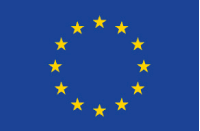
To ensure a safe travel environment for passengers, our sector is continuously investing in advancing safety and security in transport networks.
UITP is engaged in various initiatives where we work together with our members to ensure safer journeys. The EU-funded SAFE BUS project, which launched in 2021, brings together public transport and security services to advance safety and security in public bus networks.
Together with UITP Academy, the project has introduced an e-learning course for both managers and bus drivers, making sure that all transport providers have access to knowledge about transport safety and emergency procedures.
Soon, SAFE BUS will publish two Handbooks. The Drivers’ Handbook will outline a driver’s role within a company’s security plans and contain relevant references and procedures they must follow in emergencies. The Managers’ Handbook will be a blueprint outlining best practices that may help to compile company-specific security procedures and trainings.
SAFE BUS will present project results at the UITP Security Days on 14 September. Do you want to join the discussion? Register here.
With UITP at the helm, SAFE BUS joins four UITP members: ARRIVA, ZTM Warsaw, CARRIS and ATAC. We sat down with Arriva and ZTM, to speak about how they will leverage SAFE BUS to advance security in their operations.
What is it important for you as authority and operator to participate in a project like SAFE BUS?
Aleksandra Puzyńska, Senior Specialist of Domestic and International Cooperation at public transport authority ZTM Warszawa: “ZTM is involved in various projects regarding public transport safety and security to raise its level in Warsaw Public Transport (WTP). Thanks to being part of projects such as SAFE BUS or PREVENT PCP we share knowledge and gain experience that we can later use in our operation. It’s key that this topic is constantly present in the public space and that the learning materials for drivers and WTP employees are regularly improved”.
Jan Politiek, Chief Security Officer at Arriva: “Within SAFE BUS, Arriva introduced, together with other partners, new measures that should reduce terrorist attacks in the bus networks. We invest a lot in security, and we have much experience with measures that we like to share with others”.
How can you leverage the outcomes of the SAFE BUS project?
Aleksandra: “ZTM cooperates with operators under long-term agreements: it is their responsibility to provide security trainings for drivers. However, as authority ZTM can put basic requirements and recommendations concerning trainings in contracts that can be included in the tender procedure. We hope that the e-learning courses will be attractive to both drivers and managers. Given that the language can be a big barrier here, translating them into other languages is crucial.”
Jan: “Arriva can make good use of the measures also brought in by the other partners in our operations. We will also further share this information within the other Arriva Europe countries, making the SAFE BUS project more widely used than in the Netherlands alone. In addition, it’s also very important to better safeguard this knowledge and experience together with networks like Police and Government, National, Regional and Local.”
What are some new projects in terms of security you are currently working on?
Aleksandra: “CCTV monitoring and audio recording were topics often discussed at SAFE BUS meetings. As organiser of public transport, we strictly define the technical specifications to be met. Recently we have reviewed previous requirements and studied technology upgrades available in the market, and we can proudly say that advanced specifications will be included in the upcoming contracts to advance bus monitoring.
Another development will be our next campaign concerning unattended items. During SAFE BUS we found out that certain elements were missing in our current campaign. Our next campaign will address other aspects like being alert to unusual situations and abnormal behaviour of a passenger or bus driver.”
Jan: “In particular the training created in the project, including the SAFE BUS e-learning modules, gives significant added value to better train Arriva staff. The topic of cybersecurity is also going to play more of a role in the bus modality, partly because of the increase in zero emission vehicles. This is a topic we want to explore further.”

Questions or feedback? We’d love to hear from you!
Please contact Project Manager Carmela Canonico
carmela.canonico@uitp.org
Rue Sainte-Marie 6,
B-1080 Brussels, Belgium

This project was funded by the European Union’s Internal Security Fund – Police, under the Grant Agreement No. 101034233